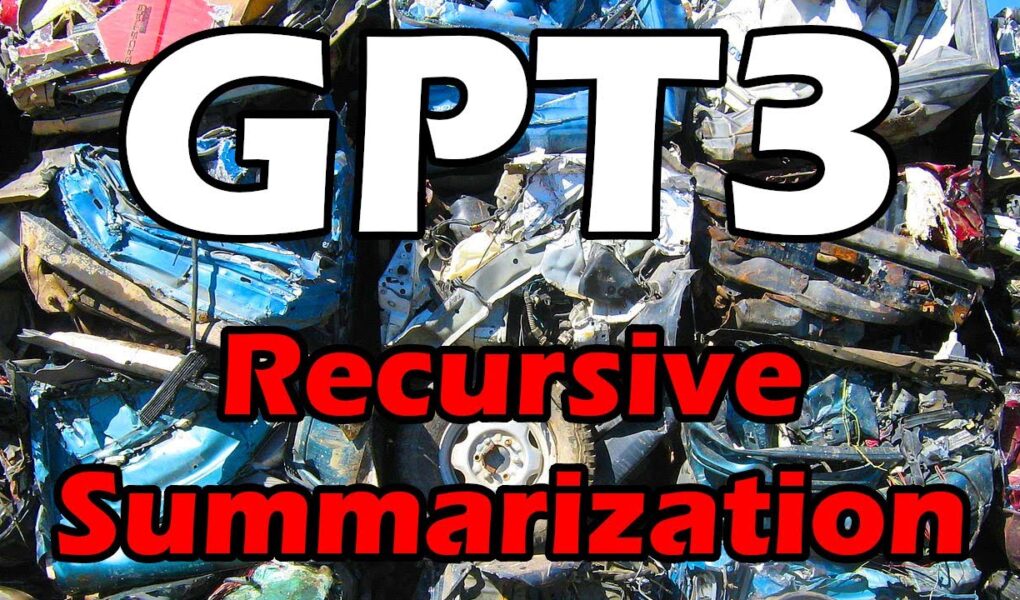David Shapiro
Patreon: https://www.patreon.com/daveshap (Discord via Patreon)
Substack: https://daveshap.substack.com/ (Free Mailing List)
LinkedIn: https://www.linkedin.com/in/dave-shap-automator/
GitHub: https://github.com/daveshap
Recursively summarize text of any length with GPT-3
